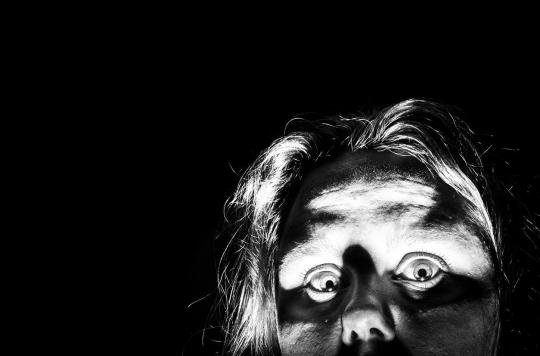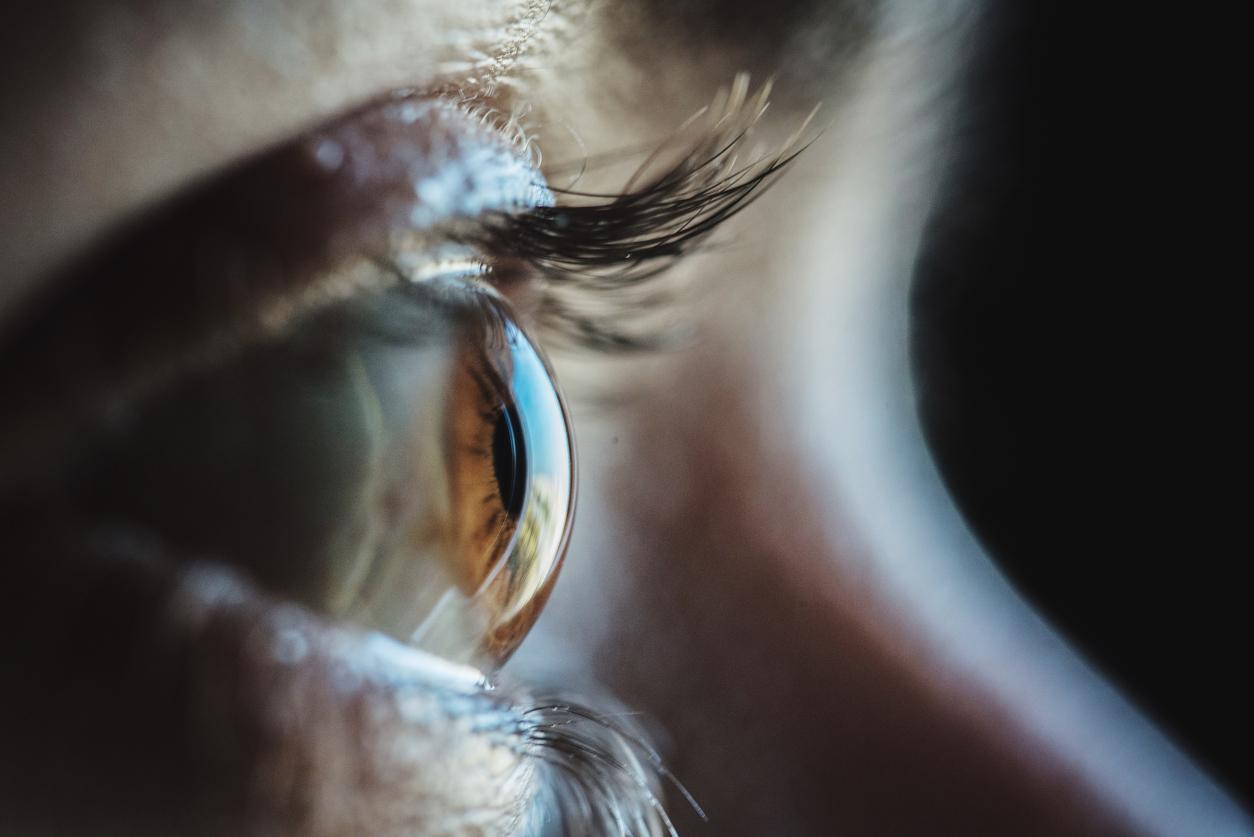For decades, the cinema has contributed to conveying the worst clichés about schizophrenia, in particular thanks to horror films, pushing many patients to refuse their diagnosis. But what if it was instead used to rehabilitate the disease?

- Cinema has conveyed many negative clichés about schizophrenia
- An association has just produced a web series on the disease
Psychosis, Black Swan, Shutter Island…all of these movies are about mental illness. And as good and entertaining as they are, they misrepresent schizophrenia, which the main characters are supposed to suffer from. Thus, for decades, the cinema has contributed to conveying the worst clichés about this affliction, pushing many patients to refuse their diagnosis. A denial that often results in a delay in treatment, and therefore a poorer prognosis for recovery.
“Schizophrenia has always fascinated. It’s not like having diabetes or appendicitis, it’s something you can’t feel, ”analyzes Dr. Marine Raimbaud, psychiatrist at Sainte-Anne Hospital, expert in representations of schizophrenia in cinema, interviewed by Why doctor. Very often, the representations are bad: “In Flight over the Cuckoo’s Nest (Milos Forman), Jack Nicholson is absolutely not schizophrenic: he is a nice little psychopath. In Psychosis (Alfred Hitchcock), the psychiatrist’s diagnosis at the end is completely bogus, Norman Bates is absolutely not schizophreniclaughs the specialist. Films often convey the image of a dangerous, unpredictable patient… whereas patients are not like that”.
Often, because of the movies, people also tend to confuse schizophrenia with bipolar disorder. “Bipolars have manic phases where they no longer sleep and do lots of things. Their brains are very fast, they speak extremely fast and think everyone else is slow. They also have acute phases of depression, but between episodes there will be no residual symptoms, unlike schizophrenia.explains Marine Raimbaud. People with schizophrenia can suffer from very delusional acute episodes. These are the loudest and most impressive symptoms but between these attacks very distressing syndromes will persist”. Among the latter, cognitive disorders or behavioral disorganization with somewhat atypical presentations. “It is true that at the level of the description of the crisis phases, the two diseases may seem similar. What I like about psychiatry is that you are like a detective, you have to look in the patient’s history to make the right diagnosis”enthuses the expert.
Cinema could now be used to rehabilitate the disease
Another quite frequent “rookie mistake” conveyed by the cinema: confusing schizophrenia and dissociative identity disorder, as in the film Split (M. Night Shyamalan), for example. In France, this disease is not recognized. ” It’s an American concept. Supposedly, 3 to 5% of the population would suffer from it, that’s a lot when you know that schizophrenia affects 1% of people, which is already huge. Personally, I have never had a patient who suffered from split identity disorder and none of my colleagues either, so I have my doubts. But a priori, as in Split, each personality follows one another, without being aware of the existence of the others”, explains Marine Raimbaud. Nothing to see with fight club (David Fincher) therefore, where the two personalities interpreted by Edouard Norton and Brad Pitt exchange between them.
However, some films are more accurate. “I think The Soloist (Joe Wright) gives a fairly correct representation of schizophrenia. This film clearly shows the feeling of persecution from which the sick can suffer and the psychological suffering that this induces.. Clean, Shaven (Lodge Kerrigan) also illustrates the delusional ideas well even if the film starts from the premise that the main character is violent”explains Marine Raimbaud.
Because no, not all schizophrenics are violent and many manage to lead a normal life when they are well followed, insists the psychiatrist. “I have patients who are lawyers, doctors, engineers… At the time of the diagnosis, I tell them all the time that it will not prevent them from having a house in the suburbs and children.” Indeed, everything is decided at the moment of the announcement of the disease. “At this moment, you have to accept what the patient wants to know. It is not because we doctors have decided on this diagnosis that the patient wants to hear it. The major problem is stigma. At the beginning of their illness, people begin to hear small voices and say to themselves : ‘No but anyway I’m not crazy, I don’t need to go see a psychiatrist’. It would be the best time to come and see us. The earlier we intervene, the better the prognosis. However, because of this horrible picture of the disease, far too many people are waiting to come see us. They are picked up at the hospital when the troubles have already been installed for a while. It is then more difficult to treat, the treatments are less effective.”
However, if the cinema was an important vector of stigmatization in the past, it could now serve to, on the contrary, rehabilitate the disease. “Instead of constantly making horror films that take place in asylums that give an abominable image of psychiatry, we could do an advertising campaign to inform about schizophrenia or create series on the disease”suggests Marine Raimbaud.
18-25 year olds, the ideal target for a series
A series on the disease is precisely what the Les Journées de la schizophrénie association has just done with episode zero of his series Schizo, the first scientific web series inspired by real events and endorsed by a committee of experts. The series, created on the basis of testimonials from patients, tells the story of Alice, who on entering second grade in a new school, begins to experience the first symptoms of schizophrenia.
“We wanted to stage a character who, overnight, sees his friends and his environment change. The goal as a spectator was to say to oneself: ‘How will I react if everything I know changes overnight?’. Thanks to the panel of scientists, we were able to refine the scenario to be sure to have something concrete and authentic.”, explain the directors of the series, on the occasion of an event organized at the beginning of March by Les Journées de la schizophrénie on the representations of the disease in the cinema.
The first symptoms of the disease often appear between the ages of 18 and 25. However, this age group is particularly sensitive to series. “We wanted to get closer to the target, create resonance and break with traditional medical communicationthey detail. The series allow a collective viewing which promotes dialogue, and it is essential to exchange with those close to you to spread the message. So we had a strong way to capture attention here.”
For Frank Bellivier, ministerial delegate for mental health and psychiatry, also present at the event, “artistic creation is an extremely powerful lever for changing representations and promoting the idea of the possibility of recovery in pathologies deemed to be chronic. It is an important change in the representation of these disorders on which we must insist a lot. When we speak of disability, we often refer to fixed difficulties and, what we have discovered over the last ten years, is that in reality these situations of psychic disability can be mobilized thanks to specific tools. You have to take a militant stance to promote this idea that recovery is possible”he continues, warmly congratulating the initiative of the web series.
Impossible to produce more without the means of cinema
Asked about the subject, the various speakers at the event offer, for example, to broadcast these films “in a civic education course with an accompanying person, a caregiver or a psychologist” to raise young people’s awareness of schizophrenia and answer their questions.
Unfortunately, the association, the directors and the screenwriters would have “wanted to produce the whole series but impossible without the means of cinema”. Without additional budget, this initiative remains unable to go further than a zero episode and a website describing the symptoms of schizophrenia. “We really hope to produce the sequel, to be able to involve families and patients to produce a number of episodes showing the symptoms in detail for a year. Then, the following year, why not be in the revelation, by showing that with the progress of medicine, one can recover from schizophrenia and have a happy ending”hopes the team.

.















